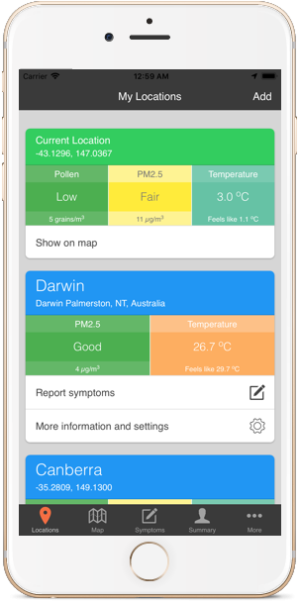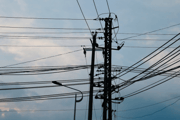Survive the extreme summer with this new technology designed to protect Aussies!
Australia is no stranger to scorching summers, where the blazing sun doesn’t just cause discomfort—it poses real health threats.
As the temperatures soar, technology is stepping up to help Aussies protect themselves.
Heat Watch app
Researchers at the University of Sydney’s climate chamber lab have been recreating historical heat waves, like those of Melbourne in 2014 and Adelaide in 2009.
They have studied the heat’s effects on participants, focusing on factors such as heart rate and dehydration levels.
Ollie Jay, the Director of the Heat and Health Incubator at the University of Sydney, noted: ‘The way in which extreme heat impacts a pregnant woman versus a child, versus somebody who's working in a factory or an older person living out in Western Sydney—the challenges are very different.’
Their findings have led to the development of the ‘Heat Watch’ app.
More than just a temperature monitor, this app offers tailored advice to users, considering variables like humidity, cloud cover, and wind conditions.
‘It’s not just the temperature that impacts your health. It's the humidity, it's whether it's cloudy or clear, whether it's windy or still,’ Jay said.
Whether it’s a recommendation to wet your skin or suggestions about when to open windows, the app equips users with actionable tips.
In cases of extreme heat, it may even advise against the use of fans.
‘Once the temperature goes above 40 degrees in most circumstances, electric fans will actually be detrimental,’ Jay explained.
According to Nine News, the Heat Watch prototype app is set to be available this month, however, at the time of reporting, we were unable to find it on the App Store.
AirRater app
Australia's climate concerns aren’t limited to just heat. Air quality plays a crucial role in our health as well.
The ‘AirRater’ app, designed by the University of Tasmania Professor Fay Johnston, alerts users about air quality changes and potential hazards like high pollen counts.
‘The everyday fluctuations in air quality and pollen levels actually have a really profound impact on our health,’ University of Tasmania Professor and Air Rater creator Fay Johnston said.
Drawing from Commonwealth Scientific and Industrial Research Organisation (CSIRO) and Bureau of Meteorology data, it notifies users in advance of impending conditions, allowing them to prepare and even monitor symptoms.
‘In the app, over time it will correlate (symptoms) with the environment—so it's a way to tell whether it's grass pollen or smoke,’ Johnston said.
AirRater not only monitors temperature and alerts you about extreme weather but also tracks air pollution through a network of monitoring stations.
In areas without stations, it fills gaps using modelling developed by CSIRO.
Apple users can download the app here. Android users can find it here.

Members, how are you gearing up for the summer heat? Please share any apps or tips you use to stay cool during heat wave attacks in the comments below!
As the temperatures soar, technology is stepping up to help Aussies protect themselves.
Heat Watch app
Researchers at the University of Sydney’s climate chamber lab have been recreating historical heat waves, like those of Melbourne in 2014 and Adelaide in 2009.
They have studied the heat’s effects on participants, focusing on factors such as heart rate and dehydration levels.
Ollie Jay, the Director of the Heat and Health Incubator at the University of Sydney, noted: ‘The way in which extreme heat impacts a pregnant woman versus a child, versus somebody who's working in a factory or an older person living out in Western Sydney—the challenges are very different.’
Their findings have led to the development of the ‘Heat Watch’ app.
More than just a temperature monitor, this app offers tailored advice to users, considering variables like humidity, cloud cover, and wind conditions.
‘It’s not just the temperature that impacts your health. It's the humidity, it's whether it's cloudy or clear, whether it's windy or still,’ Jay said.
Whether it’s a recommendation to wet your skin or suggestions about when to open windows, the app equips users with actionable tips.
In cases of extreme heat, it may even advise against the use of fans.
‘Once the temperature goes above 40 degrees in most circumstances, electric fans will actually be detrimental,’ Jay explained.
According to Nine News, the Heat Watch prototype app is set to be available this month, however, at the time of reporting, we were unable to find it on the App Store.
Australia's climate concerns aren’t limited to just heat. Air quality plays a crucial role in our health as well.
The ‘AirRater’ app, designed by the University of Tasmania Professor Fay Johnston, alerts users about air quality changes and potential hazards like high pollen counts.
‘The everyday fluctuations in air quality and pollen levels actually have a really profound impact on our health,’ University of Tasmania Professor and Air Rater creator Fay Johnston said.
Drawing from Commonwealth Scientific and Industrial Research Organisation (CSIRO) and Bureau of Meteorology data, it notifies users in advance of impending conditions, allowing them to prepare and even monitor symptoms.
‘In the app, over time it will correlate (symptoms) with the environment—so it's a way to tell whether it's grass pollen or smoke,’ Johnston said.
AirRater not only monitors temperature and alerts you about extreme weather but also tracks air pollution through a network of monitoring stations.
In areas without stations, it fills gaps using modelling developed by CSIRO.
Apple users can download the app here. Android users can find it here.
Key Takeaways
- New technology is being used to track dangerous weather conditions and prevent negative health outcomes as Australia prepares for extreme summer heat.
- Researchers at Sydney University have developed a ‘Heat Watch’ app, which provides personalised advice for cooling down based on various environmental conditions.
- The ‘Heat Watch’ app's suggestions can range from water application to the skin to advice on opening or closing windows, and even turning off fans in certain situations.
- An Australian app called ‘AirRater’, which focuses on air quality, is also available. It alerts users about changing conditions and helps track symptoms related to air quality and pollen levels.









